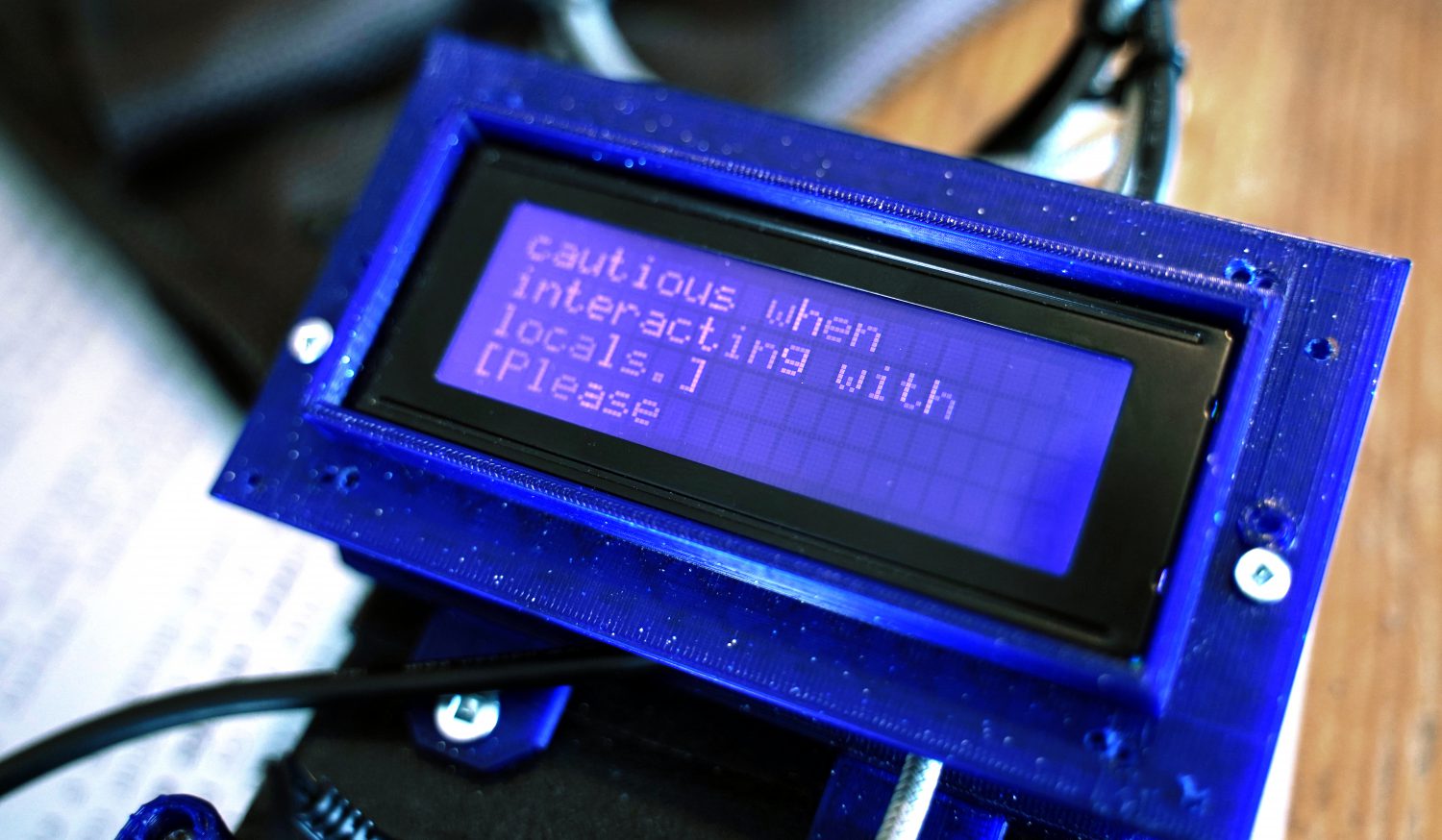Last week, I finished a playtestable version of a new nanolarp/improv game called “Genres of Thought” and had the chance to play one round with the folks from the Reflective Games project. We discussed it before playing, and Enric brought up the idea that technologically-assisted larps could be a different way of framing a larp and thinking about what “counts” as a larp and what could count, opening up the definition and hopefully making the form more accessible and less scary to new players.
During the game, I noticed a few elements that needed smoothing out, or that I had accidentally omitted from the rules — but, this wasn’t so much of an issue since I was the gamemaster and could make a decision on the fly about things like who should start the scene (it would have been utter confusion to have all the players at once), or who should be the “odd genre out” (I used a random number generator).
The Group Genre was “Fantasy” and the task was “to keep the surprise party a secret at all costs. The Odd Genre Out was mystery, and the Odd Genre goal was to describe your alibi for a crime, perhaps explaining the details of the crime. In the scene, players were preparing a surprise party for their 30-year-old Elder (people in Fantasy medieval age eras didn’t live so long, remember) and the Odd Genre Out was professing that they had not in fact told the Elder about the surprise party. There was also a bit with a giant magical frog, and a lot of laughter. With five players, it was a bit of a jumble, but the players seemed to have fun.
The genres were not as much a part of the focus as I would have liked — I think this also might have been because all the players were active at once, and both trying to pay attention to each other and be active in the game. More playtesting is needed to determine whether five players is too many, or whether players just needed to go “on” and “off-scene” more in the way that improvisers do. For now, I’ve not included that as a requirement, because I intend for this to be a nanolarp, and in larps, simultaneous scenes happen all the time.
The question that we discussed at the end of the round was, “What is something that you used to believe in that you don’t believe anymore, and why might that be the case?”
One of the players, noting that it’s the “big questions” that are likely to occur to people right away, noted that they no longer believe in God. The rest of our discussion focused on this topic, and people’s experiences with spirituality and the institutions that surround religion.
We also talked about the experience of playing afterwards — I think that many of the first round jitters would have been smoothed out with a few more scenes, and I admitted that while I eventually expected players to build up a rapport and a comfort/intimacy through play that would allow them to get to the “heavy” topics, I was surprised that it happened right away for our group. The Reflective games folk generally seemed to agree that playing together did make players feel open to discussing this vulnerable topic, but that also our pre-existing relationships as a research group (with the exception of a guest to the lab who was meeting us for the first time) likely also impacted what the players were willing to discuss.
I spent a bit of time reworking the rules to clarify some aspects of the game for both gamemaster and players based on this playthrough. Primarily, the rules I added have to do with how to choose the focus for the scene (basically, it’s okay to do it however you want and have multiple conversations going on at once, because it’s a larp, but if you want to play for an audience, use the Gamemaster as a “camera,” focusing attention on certain players in the scene). And with that, this prototype is ready to release out into the world. Here it is! Here’s the github repository.
When I brought up the fact that I knew some fairly experienced improvisers who might be willing to try out the game, the Reflective Games group expressed curiosity about what the gameplay would be like with these more experienced players. While I wasn’t able to arrange anything for my current visit in Montreal, my friend Jordan McRae has put together a group of people who are willing to playtest the game the next time that I am in town.
